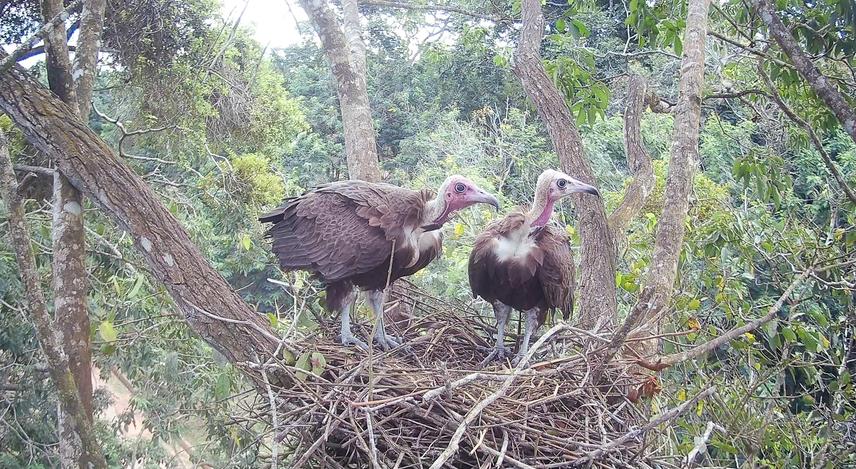Joseph Kwasi Afrifa
Other projects
6 Sep 2023
Breeding Ecology of Critically Endangered Hooded Vulture (Necrosyrtes monachus) in Cape Coast Metropolitan Area in Ghana
Vultures are essential scavengers that play a critical role in maintaining ecosystem health by cleaning up carcasses and controlling the spread of diseases. However, vulture populations across Africa, including Ghana, are rapidly declining due to illegal hunting, illegal trade, illegal killing, habitat loss, and poisoning. The Cape Coast and Goaso Municipality are key areas where vulture populations are observed, but their numbers continue to decrease. Although the West African Vulture Conservation Action Plan (2023–2043) emphasises research, education, and population monitoring as critical interventions, systematic research and active community engagement remain limited in these areas where relatively large populations still thrive.

A pair of Hooded Vulture Necrosyrtes monachus constructing a nest. © Joseph Kwasi Afrifa.
In the first Rufford-funded project, we gained insight into the nesting ecology of Hooded Vultures, which led to the discovery of causes of mortality and the importance of tall trees in communities as nest sites for vultures. The project also engaged locals, fostered community involvement, and ensured continuous data collection vital for long-term conservation efforts. Expanding this network of citizen scientists is essential to broaden the scope of vulture monitoring across a wider area, as it has proven to be an effective way to empower communities and increase their involvement in conservation. Additionally, conducting in-depth research and gathering empirical scientific data will provide the critical evidence needed to support and strengthen conservation strategies.
This project seeks to enhance vulture conservation in Ghana’s Cape Coast and Goaso ecological landscapes through targeted research and active community engagement. We will monitor vulture populations, distribution, movement, and breeding success using methods such as roost site surveys, feeding ground counts, and wing tagging. Local communities will play a central role in the monitoring process, with volunteers trained and involved in data collection. Public education campaigns will also raise awareness about the vital role vultures play in maintaining ecosystem health. Ultimately, the project aims to establish long-term community participation and reliable data systems to support sustainable vulture conservation.
Header image: Hooded Vulture Necrosyrtes monachus on its nest. © Joseph Kwasi Afrifa.